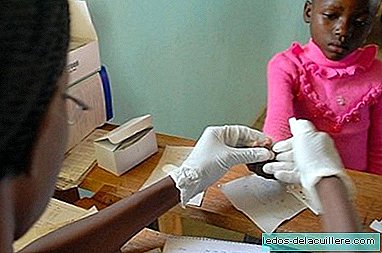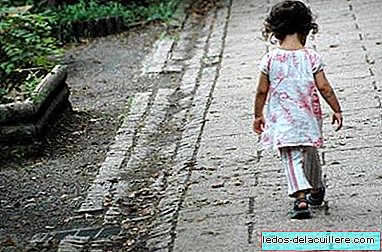
There is much debate today about the convenience or not of vaccination in infants and children. There are currents that indicate that the diseases against which it is vaccinated had already disappeared, or that they are dangerous and that they advocate non-vaccination. But what would happen if we stopped vaccinating our children?
Well, according to experiences and studies in different countries, it seems clear not only that if it were not for the vaccines the diseases would not disappear, but if the vaccination was interrupted they would reappear.
This is what we see in a document on widespread misconceptions about vaccination, which was prepared by the Centers for Disease Control and Prevention of the United States primarily for use by physicians whose duties include administering vaccines to children, and which the World Health Organization reproduces in its pages.
Vaccines are a mechanism for the control of many infectious diseases that were common in the past and today are not so. However, viruses and bacteria that cause disease, and even death, still exist (although they can be prevented by vaccines) and can be transmitted to those who are not protected by vaccines.
Polio, measles, rubella, whooping cough, meningitis type b ... are diseases that today would have a great economic impact and result in medical consultations, hospitalizations and premature deaths.
It is clear that hygienic-sanitary advances they made the incidence of diseases against which we are vaccinated decrease in many places, but they were not eradicated or controlled, a control that only came after mass vaccination campaigns.
Current globalization, the ease of travel, is another reason that would cause diseases that are present in other parts of the world to move easily to new areas if the population is not vaccinated.
Let's take a more or less recent example, the great epidemics of diphtheria that occurred in the former Soviet Union in the 1990s.
The low rates of primary vaccination in children and the lack of booster vaccines for adults resulted in an increase in the number of cases, from 839 cases in 1989 to almost 50,000 cases and 1,700 deaths in 1994. At least 20 imported cases occurred in Europe and two cases in citizens of the United States who had worked in the former Soviet Union.

The risks inherent in vaccines, on the other hand, seem to not reach those of the diseases they intend to fight. In the document "What would happen if we suspend vaccination campaigns?", of the aforementioned Centers for Disease Control and Prevention of the United States, conclude:
The truth is that a child's health is much more likely to be severely affected by one of these diseases than by any vaccine. Any case of serious illness or death caused by vaccines is unfortunate, but it is clear that the advantages of vaccination far outweigh its scarce risks and that without vaccines many more conditions and deaths would occur. Certainly, having a medical intervention as effective as vaccination for disease prevention and not using it would be unscrupulous.
I also think, after these conclusions, how paradoxical it is that in this first world we are considering the possibility of stopping vaccinated, when in other areas it would be so necessary to implement vaccines. An extension that does not come because vaccines only reach those who can afford them. Many children’s health and advocacy organizations work in the world, such as WHO or UNICEF.
And returning to our environment, without a doubt, cases such as the withdrawal of batches of rotavirus vaccines or the alarm for influenza A that has remained nothing, does not contribute to building confidence in vaccines, although in this case it is of the "electives".
But maybe withdraw trust to the entire vaccination, to "mandatory" immunization campaigns be an irresponsible attitude, in view of the exposed data.












